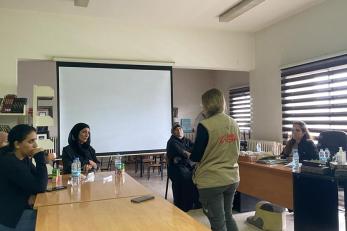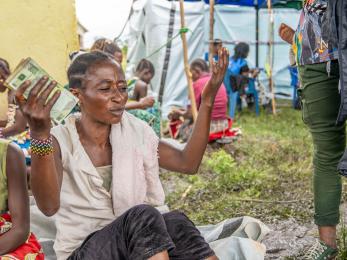Participatory cash programmes: Perspectives from the field

The design of cash and voucher assistance (CVA) programmes, especially when implemented at scale, is often driven by technical considerations. The conversations focus on the survival minimum expenditure basket, financial service provider’s fees and targeting algorithm. Important decisions regarding the design of CVA systems are made at the proposal stage and can be difficult to reverse later. Implementing agencies often have very narrow windows of opportunity to get the systems right for the people they aim to support. Therefore, consulting affected populations at proposal stage is important to ensure that CVA programmes adopt a people-centric approach.
Between September 2023 and February 2024, Mercy Corps has conducted a consultation loop at the proposal stage of its multi-purpose cash programme in Lebanon. This learning brief documents the best practices and lessons learnt during this initiative. It takes the perspective of the field teams who were tasked with the challenge of operationalising the participation commitment in practice. It sheds light on three challenges.
- Consulting affected populations at a time when funding is not confirmed runs the risk of raising expectations for assistance. Limited evidence exists on the extent to which meaningful engagement can act as an antidote to expectation raising.
- In some cases, community preferences conflict with humanitarian principles. This limits the extent to which humanitarian systems can reflect those preferences.
- The notion of participation needs to be adapted to local cultural norms and overcome siloed views of what accountability to affected populations really means.
Mercy Corps experience underscores the importance of generating evidence on the benefits and best practices related to participation. A critical mass of evidence is needed to win the hearts and minds of aid providers about the benefits of meaningfully involving crisis-affected communities in the design of humanitarian systems. Having frank discussions about what works and what doesn’t work is the first step towards building a learning culture on participation.


